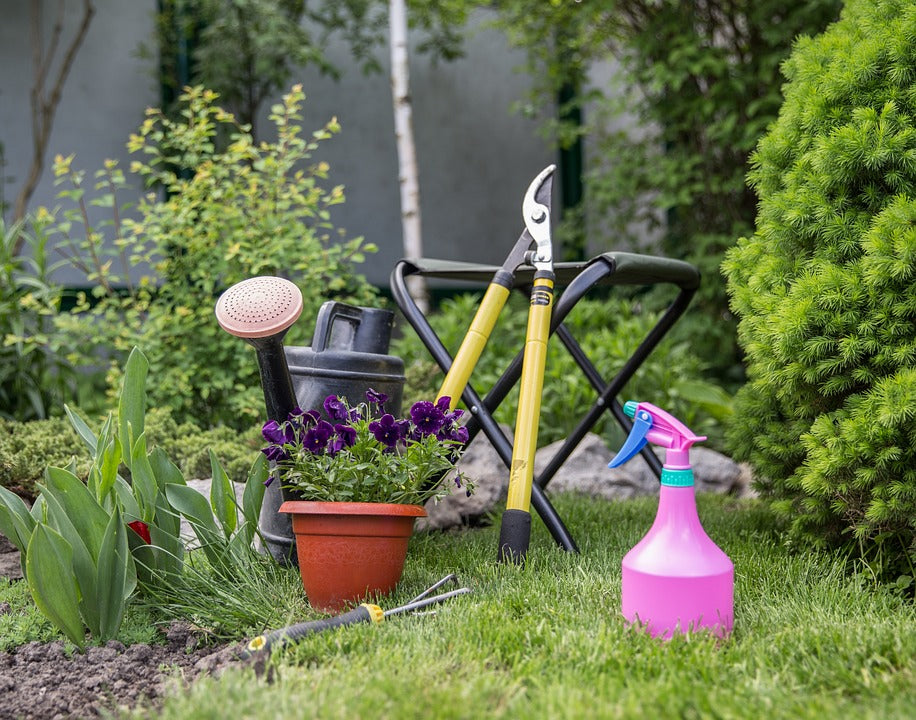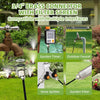
How to Keep Insects Out of Your Garden: 8 Effective Tips
A lush, thriving garden is a source of joy and satisfaction for any gardener. However, the presence of unwanted insects can turn this sanctuary into a frustrating battleground. While not all insects are harmful—some even benefit your plants—managing pests is essential to protect your garden’s health. Here, we explore eight effective strategies to keep destructive insects out of your garden while maintaining its natural balance.

1. Encourage Beneficial Insects
Not all insects are enemies to your plants. Some, like ladybugs, lacewings, and parasitic wasps, are natural predators that feed on harmful pests such as aphids, caterpillars, and whiteflies. To attract these helpful allies:
-
Plant nectar-rich flowers like dill, fennel, and yarrow.
-
Avoid using broad-spectrum pesticides that harm both pests and beneficial insects.
-
Provide habitat by including diverse plant species and leaving some natural areas in your garden.
These allies will help maintain a natural pest control system.

2. Choose Pest-Resistant Plants
Some plants are naturally less appealing to insects due to their taste, scent, or chemical makeup. Consider integrating pest-resistant varieties into your garden to minimize damage. For example:
-
Herbs like basil, rosemary, and mint repel many insects.
-
Marigolds are known to deter nematodes and aphids.
-
Planting disease-resistant vegetable varieties can also reduce pest issues.
Researching plant varieties suited to your local environment will enhance this strategy’s effectiveness.

3. Use Companion Planting
Companion planting is an age-old technique that involves pairing plants to enhance growth and deter pests. Certain plants release chemicals that repel harmful insects or mask the scent of more vulnerable crops. Examples include:
-
Planting garlic or onions near roses to deter aphids.
-
Pairing tomatoes with basil to repel whiteflies.
-
Growing nasturtiums near cucumbers or beans to keep squash bugs and beetles away.
By strategically placing plants, you can create a natural defense system in your garden.
4. Keep Your Garden Clean
A tidy garden is less inviting to pests. Many insects thrive in debris, weeds, and decaying plant matter. To reduce their habitat:
-
Remove dead leaves, fallen fruit, and weeds regularly.
-
Prune overgrown plants to improve air circulation.
-
Dispose of infested plants to prevent pests from spreading.
Maintaining cleanliness not only deters insects but also prevents the spread of diseases.
5. Use Natural Repellents
Natural repellents are an eco-friendly way to keep insects at bay. These solutions are safe for your plants, pets, and the environment. Popular options include:
-
Essential Oils: Mix peppermint, citronella, or eucalyptus oil with water and spray it around your garden.
-
Neem Oil: A natural pesticide derived from the neem tree, it disrupts the life cycle of many pests without harming beneficial insects.
-
Garlic Spray: Blend garlic with water and a little dish soap to create a repellent spray for soft-bodied insects like aphids.
Reapply these treatments regularly for best results.
6. Install Physical Barriers
Physical barriers can effectively prevent insects from reaching your plants. They’re especially useful for vulnerable crops. Options include:
-
Row Covers: Lightweight fabric covers that allow sunlight and water to pass through while keeping insects out.
-
Mulch: Apply organic or inorganic mulch to prevent soil-dwelling pests from emerging and attacking your plants.
-
Netting: Use fine mesh netting to protect fruits and vegetables from larger pests like caterpillars and birds.
Ensure that barriers are properly secured and allow adequate airflow to avoid overheating your plants.

7. Water Smartly
Overwatering or improper irrigation can create ideal conditions for pests like fungus gnats, mosquitoes, and slugs. To prevent this:
-
Water early in the morning so plants dry quickly during the day.
-
Avoid watering the leaves directly; instead, use drip irrigation or water at the base of the plants.
-
Check for and eliminate standing water, which can become a breeding ground for pests.
Smart watering practices will not only deter insects but also promote healthier plants.
8. Regularly Inspect and Act
Frequent monitoring is key to identifying pest problems early before they escalate. Inspect your plants for:
-
Holes in leaves or signs of chewing.
-
Discoloration, wilting, or stunted growth.
-
The presence of eggs, larvae, or adult insects.
If you notice signs of infestation, act quickly:
-
Handpick larger pests like caterpillars and beetles.
-
Use insecticidal soap for soft-bodied pests.
-
Introduce traps for specific pests, such as sticky traps for whiteflies or beer traps for slugs.
Regular inspections help you stay proactive and address issues before they spread.

Bonus Tips for Long-Term Success
-
Rotate Crops: Pests often target the same crops year after year. Rotating crops disrupts their life cycle and reduces their impact.
-
Encourage Birds: Install bird feeders or birdbaths to attract birds that feed on insects.
-
Compost Carefully: Use well-decomposed compost to avoid attracting pests to fresh organic material.
Keeping insects out of your garden requires a combination of prevention, monitoring, and natural pest control methods. By encouraging beneficial insects, maintaining a clean and healthy environment, and using targeted strategies like companion planting and physical barriers, you can protect your garden from harmful pests without resorting to harsh chemicals. Remember, a balanced ecosystem is the key to a thriving garden, so embrace practices that work with nature rather than against it. With these tips, your garden will remain a vibrant and pest-free haven for years to come.







